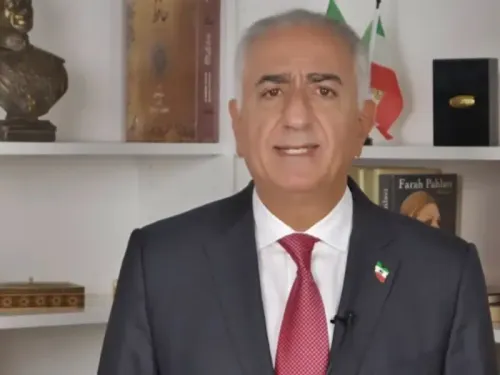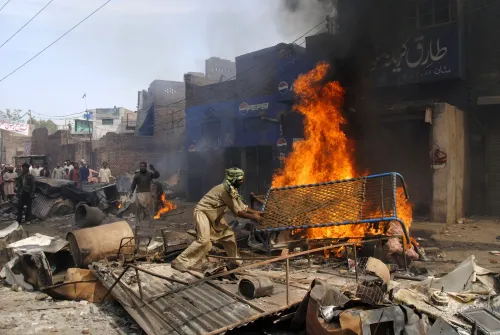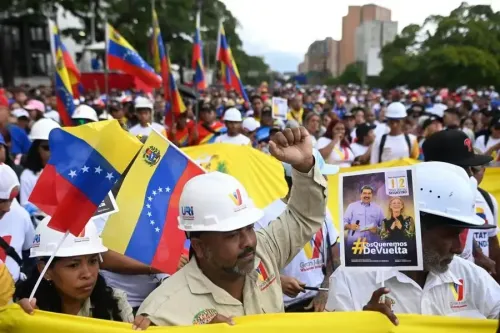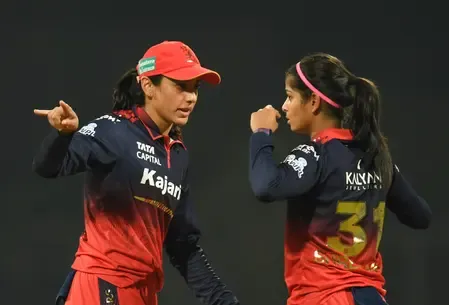38th Assembly of the African Union Centers on Reparations and Leadership Elections
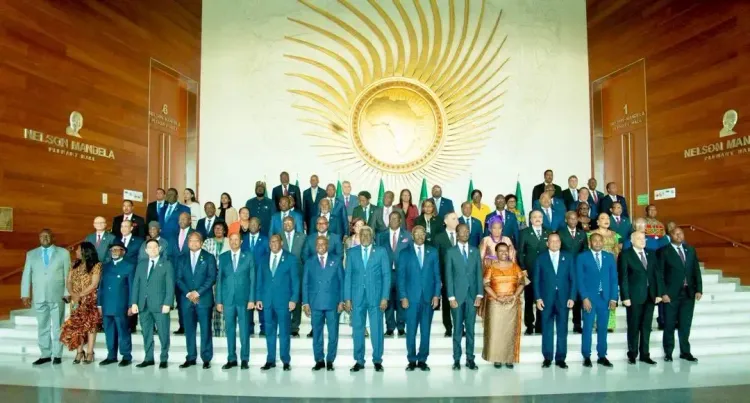
Synopsis
Key Takeaways
- Reparations as the central theme for 2025.
- Critical discussions on peace and security challenges.
- New leadership elected for the AU Commission.
- Importance of addressing historical injustices.
- Call for unity and technological advancement across Africa.
Addis Ababa, Feb 17 (NationPress) The 38th Ordinary Session of the African Union (AU) Assembly of the Heads of State and Government commenced at the AU headquarters in Addis Ababa, the capital of Ethiopia, emphasizing reparations and the election of high-ranking AU Commission leadership.
This two-day gathering, involving African leaders from AU member states and heads of various international and regional organizations, is conducted under the AU's theme for the year 2025: 'Justice for Africans and People of African Descent Through Reparations.'
In addition to reparations being the year's focal point, multiple vital issues impacting the continent, such as regional peace and security, continental development, AU reform, and enhancing Africa's presence internationally, were pivotal discussions at the AU Summit, as reported by Xinhua news agency.
During the opening session, Mohamed Ould Cheikh Ghazouani, president of Mauritania and chairperson of the AU for 2024, stated that despite advancements, the African continent urgently needs to accelerate collaborative efforts to tackle the cumulative impacts of insecurity, climate change, and socio-economic difficulties amid the evolving global landscape.
'We require the contributions of each and every one of us as part of a united endeavor to confront these challenges,' Ghazouani conveyed to the leaders.
In agreement, outgoing Chairperson of the AU Commission Moussa Faki Mahamat emphasized the development, peace, and security obstacles that have plagued the African continent in recent years.
In his final address to the assembly of African heads of state and government during his two-term, eight-year leadership at the AU Commission, Faki underscored the repercussions of economic hardship, rising conflicts, and insecurity, along with the detrimental effects of global uncertainties affecting the continent's current developmental goals.
Faki remarked that the past year saw an enhanced representation of Africa and the AU on the international stage, including the AU's full-year membership in the Group of 20 (G20) since September 2023, ultimately providing a stronger voice and more representation for Africa and the rest of the developing world.
'The inclusion of the African Union in the G20 and the BRICS, which includes several African nations, has significantly elevated Africa's visibility,' stated Faki.
According to the AU, this year's theme, officially launched during the summit, highlights the need to address historical injustices resulting from colonialism, trans-Atlantic enslavement, apartheid, and systemic discrimination.
Stressing the importance of the theme, United Nations Secretary-General Antonio Guterres remarked that the African continent suffers from 'two colossal and compounded injustices,' referring to the deep impact of colonialism and the trans-Atlantic slave trade on one hand, and Africa's lack of representation on the global stage on the other.
'Decolonization alone was not a remedy. Political independence did not liberate countries from structures built on exploitation and decades of economic, social, and institutional under-investment. It is time to establish reparatory justice frameworks,' he emphasized.
Ethiopian Prime Minister Abiy Ahmed urged African leaders to adopt technological innovations to promote continental growth, unity, peace, and security. He called on leaders to unite in harnessing 'the vast potential we possess not just as separate nations, but as a cohesive and vibrant continent.'
'In a world characterized by swift changes and numerous challenges, we stand at a junction of uncertainties and opportunities. This moment requires us to bolster our collective commitment to embrace resilience and foster unity throughout Africa,' he stated.
The AU Summit on Saturday elected Mahamoud Ali Youssouf, Minister of Foreign Affairs and International Cooperation from Djibouti, as the new AU Commission chairperson, with Selma Haddadi, Algerian ambassador to Ethiopia, appointed as the new AU Commission deputy chairperson.


